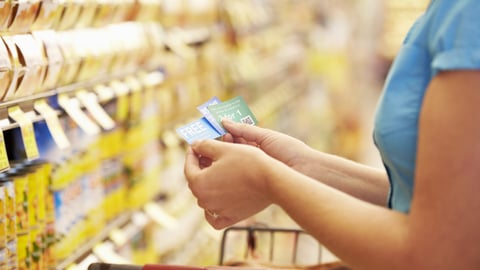Rotman’s David Soberman on the delicate art of reputation management
In business, reputation is everything. A good reputation can help boost customer loyalty and trust, sales, attract new customers and allow a business to stand out from its competitors. But what happens if the positive reputation a company has worked hard to build takes a hit? We asked David Soberman, a marketing professor at the University of Toronto’s Rotman School of Management, his thoughts on reputation management and the messaging grocers should be focused on right now. This interview has been edited for clarity and length.
What contributes to a strong brand reputation?
The No. 1 thing is providing an offer to customers that really appeals to them and delivering against that offer. In the case of supermarkets, that would be giving people a selection of products they find very appealing at prices they find affordable … in an environment they find pleasant to shop. Those things together create the reputation of a food retailer.
There’s some consumer distrust out there—how do you turn that into an opportunity?
People don’t think about a company’s reputation in great detail. They simply think about how much they pay when they go into the grocery store, and are they walking out of the grocery store with as much money in their wallet as when they shopped last week or last month or last year. Times are pretty tough for people right now and we say inflation is slowing, but we’ve not quite gotten there. So, in a sense, the No. 1 thing that’s going to repair the reputation of these grocers is slowing inflation—something quite out of their control. From a marketing point of view, is there a lot they can do? If they’re able to reduce prices in certain categories, that’s definitely something they can publicize. Try to help shoppers save money and make their grocery budget go further—that’s really the first thing that affects people’s opinion about grocery retailers.
Aside from price and value, what should grocers focus on?
I think those things are important to people when they go shopping, whether they’re going to have a direct effect on the reputation of the supermarket is another question. I think, in Canada, we are still very skeptical. A lot of Canadians have travelled to the United States and a substantial number of us have also travelled to Europe. We’ve seen what hard discounters do and how they provide an alternative to people whereby you forgo the service and the pleasant environment to get better prices.
READ: Is European food retail strategy gaining momentum in Canada?
But grocers have shouldered a lot of the blame for high food costs despite there being several factors at play.
The main thing that’s driven up prices is general inflation in the economy, largely driven by energy prices that have gone up versus where they were two or three years ago and, to a certain degree, uncertainty in the world driven by conflict in areas like Europe where Russia has invaded Ukraine and also in the Middle East. These things are contributing factors to inflation. The real issue, though, is that people see in the news that, OK, if inflation has gone up [for argument’s sake] by 10%, the grocery chains’ profits have gone up by 15%. Given the inflationary environment, that’s pretty much to be expected, but that’s not the message [in the media] we’ve been getting.
Is there a way grocers can shift the narrative?
Shifting the narrative really means nothing. What’s going to mean something is how people feel when they go shopping and whether they feel their hard-earned money is going further. This isn’t an issue of, ‘Oh, I wanna create a good image for myself.’ The issue is how people feel after paying for their groceries.
How should grocers be investing in their brands right now?
You want to communicate the things that made you successful, [for example] Loblaw’s President’s Choice and PC Optimum program are very attractive and that [loyalty] card can be used at Shoppers Drug Mart, which gives them even more strength. The only way to grow in this market is by [stealing] business from someone. So, the things they need to do are also relative to what their competitors are doing. If you are larger in one region, you probably have an advantage in terms of buying. So, you may be able to offer more attractive prices.
This article was first published in Canadian Grocer’s September/October 2024 issue.




